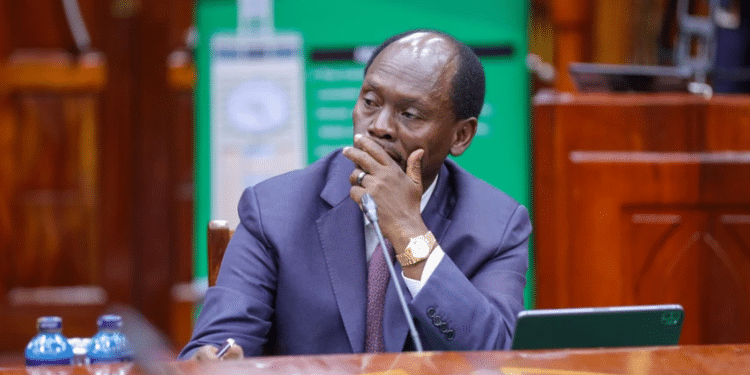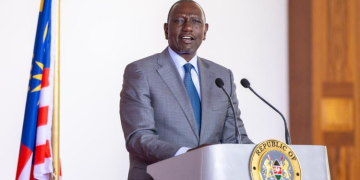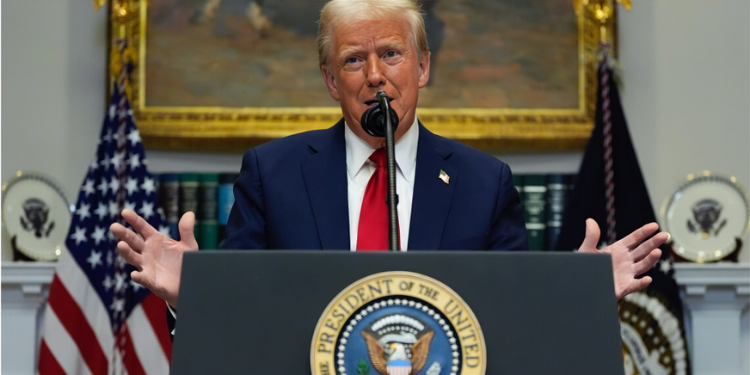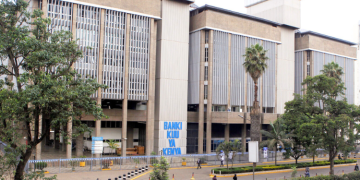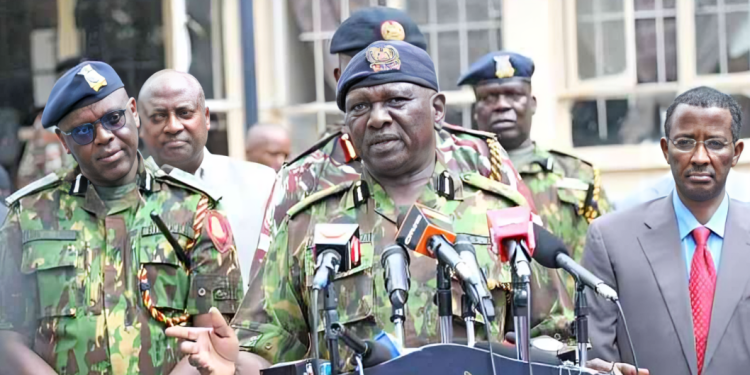The Inspector-General is appointed by the President with the approval of Parliament and holds office for a single four-year term, being ineligible for reappointment. President William Ruto nominated Douglas Kanja as the Inspector General of the National Police Service on July 25, 2024, following the resignation of Japheth Koome.
Kanja, who was previously the DIG of the Kenya Police Service, served as acting IG until his appointment was approved by the National Assembly and Senate.
He was sworn in on September 19, 2024, for a four-year term, as stipulated in Article 245 of the Kenyan Constitution, which mandates presidential appointment with parliamentary approval.
On the other hand, President Ruto appointed Lagat as the DIG of the Kenya Police Service on July 25, 2024, after a recruitment process by the National Police Service Commission (NPSC).
Grounds on Which IG Douglas Kanja Can Be Removed
Lagat, who previously served as the Director of Investigations at the Directorate of Criminal Investigations and Commandant of the General Service Unit, was sworn in on the same day alongside DIG Gilbert Masengeli (Administration Police Service) by Chief Justice Martha Koome.
Following the death of social media influencer Albert Ojwang on June 7 2025 while in police custody, Kenyans have called for the removal of Inspector General of Police Douglas Kanja and Deputy Inspector General Eliud Lagat from their respective offices.
Also Read: IG Kanja Reveals DIG Eliud Lagat Reported Albert Ojwang for Misinformation
This article explores the grounds and the process in which both the IG and DG can be removed from office.
The Inspector-General may be removed from office by the President only on the following grounds:
(a) Serious violation of this Constitution or any other law, including a contravention of Chapter Six.
(b) Gross misconduct, whether in the performance of the office holder’s functions or otherwise.
(c) Physical or mental incapacity to perform the functions of the office.
(d) Incompetence.
(e) Bankruptcy or any other just cause.
Process for Removal
The procedure for removing the Inspector General is outlined in the National Police Service Act No. 11A of 2011 and involves the following steps:
- A person can submit a petition to the NPSC, stating the facts that support one or more reasons for removal listed in the Constitution. The petition must clearly explain why removal is requested.
- Once a valid petition is received, the President will appoint a tribunal to investigate the claims. The tribunal includes a chairperson qualified to be a judge of the Supreme Court or the Court of Appeal, two individuals who can be appointed as High Court judges, and one additional expert who can evaluate the specific reason for removal.
- The tribunal will promptly investigate the case, gather evidence, and hear from relevant parties. It will then send a report to the President with its findings and a binding recommendation on whether the IG should be removed. The President must act on the tribunal’s recommendation within seven days.
Grounds on Which Douglas Kanja Can be Removed from Office
Deputy Inspectors-General are appointed by the President according to the recommendation of the National Police Service Commission.
Additionally, a Deputy Inspector General of Police may be removed from office on the following grounds:
- Serious violation of the Constitution or any other law, including a contravention of Chapter Six of the Constitution.
- Gross misconduct, whether in the performance of the functions of the office or otherwise.
- Physical or mental incapacity to perform the functions of the office.
- Incompetence.
- Bankruptcy.
- Any other just cause.
Also Read: REVEALED: How DIG Eliud Lagat Reacted to News of Albert Ojwang’s Death
The process to remove the Deputy Inspector General of Police also follows a similar procedure to removing the IG from office, which includes:
- Petition to the National Police Service Commission (NPSC)
A person or body can file a petition with the NPSC specifying the grounds for removal, or the NPSC may initiate the process on its own.
- NPSC Review
The NPSC investigates the allegations. If satisfied that the allegations warrant removal, the NPSC forwards the petition to the President.
- Presidential Action
The President may then remove the Deputy IG from office based on the NPSC’s based on the NPSC’s recommendation.
Follow our WhatsApp Channel and X Account for real-time news updates.



